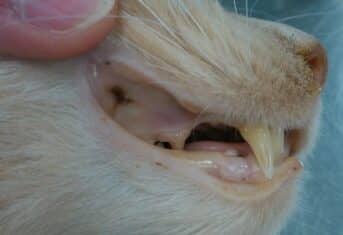Cancer in Dogs and Cats

Cancer in Dogs and Cats
If cocktail party conversation turns to my profession, other partygoers frequently express astonishment over the fact that pets suffer from cancer. They are even more surprised that the cancers in dogs and cats are very similar to human cancers. For the entire month of October, we are celebrating the opening of the Cancer Institute at the Animal Medical Center, and as part of this celebration, all blogs this month will focus on some aspect of cancer in pets. Last week I wrote about the Cancer Institute’s Licensed Veterinary Technicians. This week, I have amalgamated past blogs on cancer to create an information resource for pet owners about cancer.
Since many folks don’t realize pets get cancer, they may not recognize the warning signs of cancer in pets. The link takes you to a slideshow to help you recognize cancer in your dog or cat.
Types of Cancer in Dogs and Cats
The types of cancer veterinarians diagnose in dogs and cats are very similar to those affecting humans. Pets diagnosed with breast cancer, lymphoma and melanoma commonly seek treatment at the Cancer Institute. Skin lumps, which are common in dogs, can be noncancerous or a deadly tumor. Veterinarians often use aspiration cytology to identify malignant skin tumors prior to surgical removal. Tumors more commonly seen in dogs and cats than in humans include a family of tumors with the “last name” sarcoma. Treatment of osteosarcoma often requires an amputation to control the tumor and hemangiosarcoma is a tumor unique to dogs and cats.
Treatment Options for Cancer in Dogs and Cats
Therapies traditionally used to treat cancer in humans such as surgery and radiation therapy are mainstays in veterinary oncology. Drug therapy, whether traditional chemotherapy, targeted therapies or immunotherapy are used routinely in cats and dogs with cancer. At AMC, we also use traditional Chinese medicine as part of an integrative approach to cancer care.
Cancer Research for Dogs and Humans
Without research, we cannot improve treatments and will not improve on our current successes in cancer management. Recent advances in pet cancer have helped to delineate “new” cancers or redefine old ones to facilitate better treatment. Dogs are also helping advance the fight against human cancer as they serve as a model for various human tumors.
Finally, what is probably most important to all of us at AMC, is quality of life. Achieving a good quality of life for our dog and cat patients is really the goal of treatment, whether your pet has cancer or a different disease.

































